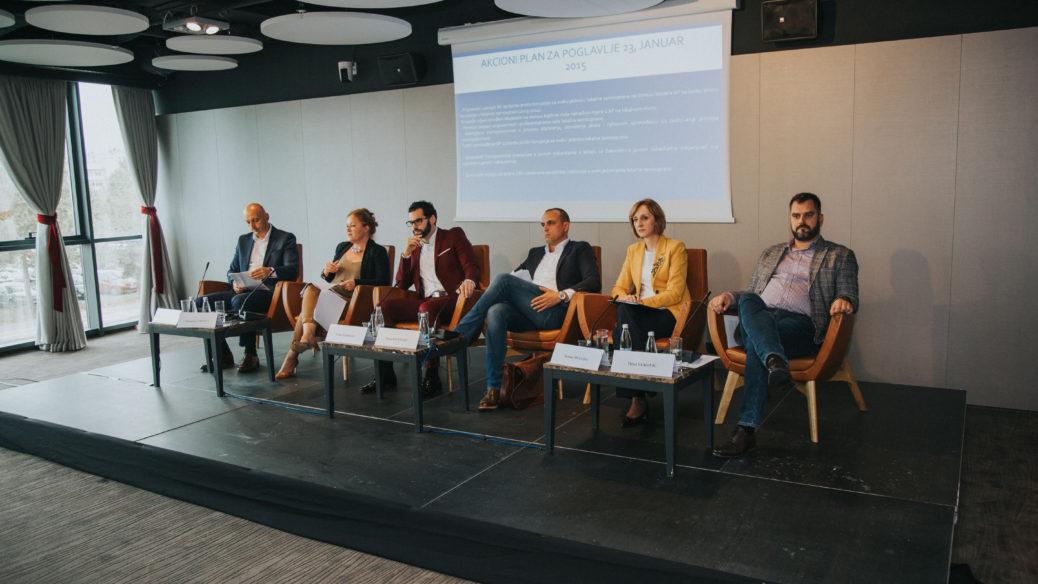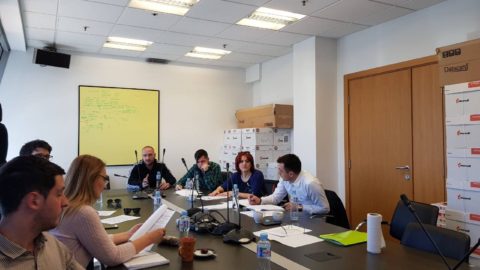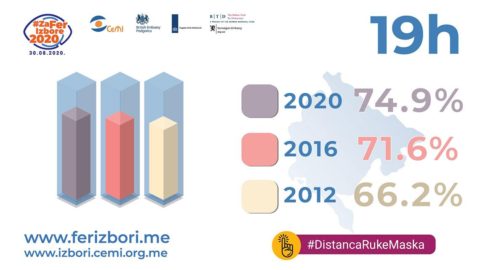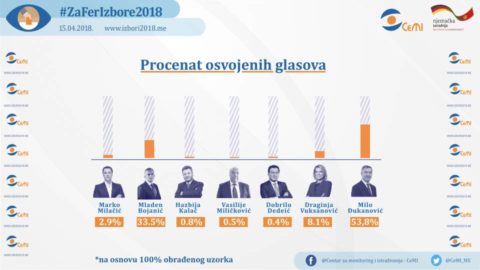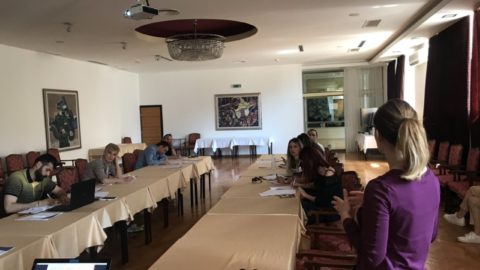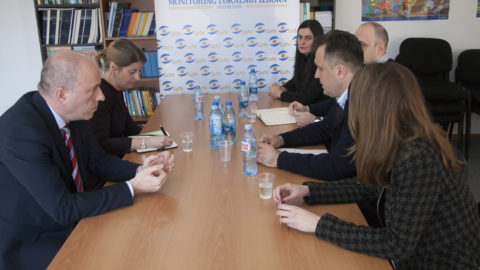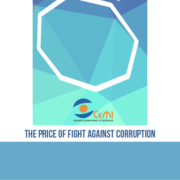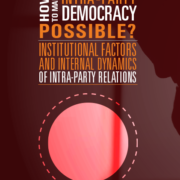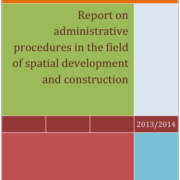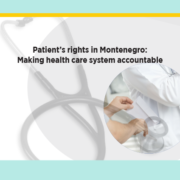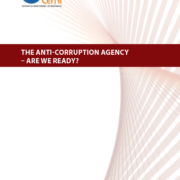Podgorica, PR Press Service – Corruption has a strong and negative impact on economic development, contributes to stratification and inequality in society, which is why it is necessary to further strengthen the mechanisms established by local self-governments in terms of transparency and accountability of doing business of immediate interest to citizens.
This was evaluated in the panel “Corruption at the local level is not a local problem”, within the second part of the annual national conference on corruption at the local level “Let’s put corruption in the museum”, organized by the Center for Civic Education (CCE).
Assistant Secretary General of the Communities of Municipalities, Sasa Scekic, said that the mechanisms, which all local self-governments have established, need to be further strengthened, in terms of transparency and accountability in the conduct of tasks of immediate concern to citizens.
“I do not agree that these mechanisms have not been established. I can agree that there is room for progress and change, however they are clearly established and exist in all local governments. Whether and to what extent we use them and whether we use them in the right way is a question for all of us”, said Šćekić.
He believes that continuous training of local officials and employees is very important.
“These are complex and responsible jobs, and we have a problem that people who do these jobs often change. We have a situation where people leave municipalities and start doing business in private business. We have to pay attention to keep these people, to further train them to do their job”, said Scekic.
He also said that “there is also an inertness of citizens when it comes to things that are of immediate interest to themselves.”
Executive Director of the Institute for Business and Financial Literacy, Milos Vukovic, said that corruption had a strong and negative impact on economic development and quality of life.
“Corruption contributes to stratification and inequality in every society, even in Montenegro, undermines trust in institutions and can lead to certain instabilities in society. It is difficult to measure systemic corruption, because of its hidden nature and its various manifestations in society. Corruption is very persistent and the results in the fight against corruption are very slow”, Vukovic said.
Vukovic reminded that, according to an IMF document, Fiscal Monitor, April 2019, it was clearly established that government revenues were significantly lower in countries that were considered more corrupt.
“For the group of countries to which Montenegro belongs, only tax revenues can generate 4.25% more annual GDP than the least corrupt countries. As GDP stood at EUR 4.6 billion in 2018, this means that Montenegro could only charge more than EUR 195 million, or about EUR 535,000 a day, or EUR 6.20 every second, or some EUR 50,000, on the basis of better tax collection. this is today’s panel”, Vukovic specified.
According to him, corruption affects “all of us” and leads to weaker institutions, feelings of injustice, mistrust, reduced quality of health services and education for all.
“If we calculate this percentage to annual GDP, from 2006 to 2018, we could collect almost € 2 billion on tax alone. This also means that our debt could have been two-thirds lower than it is today, bearing in mind that as of June 30, 2019, it amounted to 3.13 billion”, he explained.
“Corruption, in combination with other factors, is leading to a mass exodus of intellectual elites and young people. If we continue like this, in 10-15 years we will have no one to exchange opinions with. That is why the fight against corruption has to be at the number one place in the country”, concluded Vukovic.
The State Prosecutor, a representative of the Supreme State Prosecutor’s Office, Vukas Radonjic, said that the statistics do not reflect the dedicated work of state prosecutors in the fight against corruption.
“I will not put the statistics here, it is in the annual report on the work of the State Prosecutor’s Office, and all this is available, including the number of complaints on the prosecutor’s website”, Radonjic said.
He stated that it was acceptable for the public to doubt and criticize the work of any body, including the State Prosecutor’s Office, explaining in detail the legal competencies of the Prosecutor’s Office.
“And the State Prosecution is striving for better and better results. However, you must accept that, in criminal proceedings, the public interest is protected first and foremost. That is why criminal proceedings cannot be public during the whole duration, especially when it comes to crimes of high corruption. When the authorities conducting the proceedings consider that the public should be aware of the case, they will come forward with adequate information”, Radonjic explained when asked about individual cases.
He invited citizens, inspection, customs, tax and other authorities, those involved in anti-money laundering and terrorist financing, to report corruption offenses.
“Every application will be considered. We need to raise awareness in society that corruption is a serious social problem and that we cannot accept it as a daily occurrence”, said Radonjic.
He said that the Special State Prosecutor’s Office (SDT) initiated six criminal cases ex officio last year, and that the Police Directorate filed 277 and 26 non-governmental organizations.
“In any case, over 800 applications were received by SDT during 2018. These applications are actively being worked on”, Radonjic said.
The head of the Integrity, Lobbying and Regulatory Analysis Division of Corruption Risks at the Anti-Corruption Agency, Grozdana Laković, explained that integrity plans are conceived as an instrument of preventive character, which is primarily an assessment of institutions and employees.
“There is stagnation, as shown by two recent reports from the European Commission where the recommendations for local self-government are identical. An integrity plan is a preventative anti-corruption mechanism that you cannot expect a miracle from. An integrity plan depends on the integrity of the individual who writes it and on the integrity of the head of the authority who signs it and releases it”, said Lakovic.
She assessed that the integrity plan depends on the general, overall social milieu “in which we are.”
“I’m not happy with the mile we are in”, Lakovic said.
She pointed out that the main recommendation in the EC report is merit-based employment, in order to realize the principle of professionalism and responsibility of local self-government employees, regardless of who is in power.
“A systematic training plan for the whole year is a very important tool for creating staff, which in this municipality will remain independent of the political structure”, Lakovic said.
Director-General of the Directorate for Local Self-Government and State-Owned Companies in the Ministry of Finance, Snezana Mugosa, said it was crucial to place emphasis on transparency of local governments when planning and implementing the budget.
“When it comes to the budget planning process, transparency is very important. Municipalities are obliged to hold a public hearing. However, it is evident that the low level of citizen participation seems to be primarily due to a poor understanding of the municipal budget and because it is not presented in an understandable way. The recommendation through our activities is for everyone to prepare a Citizens Budget Guide that will show in an understandable way how to collect, finance and spend budget funds”, explained Mugoša.
As for the debt, she said, according to the latest data, the total debt of local governments is around 151 million euros on loans, and when it comes to arrears, they amount to 69 million euros at the end of the second quarter of this year. “But it is important that these obligations be reduced’’, she stressed.
The project Let’s Put Corruption into Museum! implemented by the CCE in partnership with the Monitoring and Research Centre (CEMI), NGO Bonum from Pljevlja, NGO UL-Info from Ulcinj and NGO Za Drug from Petrovac, in cooperation with the Anti-Corruption Agency and with the support of the Delegation of the European Union in Montenegro and the Ministry of Public Administration.


 Montenegrin
Montenegrin